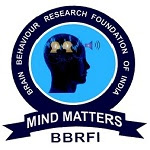These days headlines in daily newspapers have become quite predictable. Everywhere and in all walks of life, people are incurring losses, be it financial, job loss due to economic recession, deaths of loved ones due to pandemic or just a crazy forest fire burning down lovely homes, like in America. This is what we have been hearing from people or media these days. It appears, as if, suffering has become the new pandemic. The psychological cost behind these loses is unimaginable.
Degrading mental health of people, in general, is evident. The big question is,whether we are making ourselves psychologically resilient to face these loses or not? Will there be a psychological pandemic after this?
There is no doubt that the sufferings are immense and in most of the cases unrepairable. Lack of advance psychological preparedness among people is one of the reasons. In fact, nature’s fury has just caught all of us unprepared. Our psychological vulnerabilities were exposed, forcing us to feel depressed and anxious.
We have positioned ourselves in this precarious situation because of our irrational belief in a permanent ‘safety bubble’that would never get destroyed. This ‘safety bubble’may be our job, savings, salary, safe home environment, foreign trips, late night parties and etc.A non-living creature, a virus,has burst all these expensive bubbles and showed us the reality of world and life.
The fear of losing the ‘safety bubble’is so intense that it has created a tendency in us to be ‘loss aversive’. In psychology, ‘loss aversion’ means a tendency of human beings to avoid loss at all costs. Here the fear of losing, in itself is a motivation to take care and grow this bubble in size.
The solution,to the ‘issue,’ that I am arguing for, is of building a ‘resilience bubble’, which is so flexible and self-adjusting by nature that it acts as an emotional shock absorber to such external loses. The only difference is that it is filled with acceptance of crisis and skills to adapt to the new normal, driven by higher meaning or purpose to make a difference. Its nature is in sharp contrast to the nature of ‘safety bubble’.
Whether next pandemic will be of psycho-pathological nature or not, it depends on how much advantage we can take during the current pandemic to cultivate resilience and harness capability to adapt to anything.
Let us then not waste this opportunity, because next virus outbreak in future will be survived by those who are resilient.
By: Divye Kartikey
Degrading mental health of people, in general, is evident. The big question is,whether we are making ourselves psychologically resilient to face these loses or not? Will there be a psychological pandemic after this?
There is no doubt that the sufferings are immense and in most of the cases unrepairable. Lack of advance psychological preparedness among people is one of the reasons. In fact, nature’s fury has just caught all of us unprepared. Our psychological vulnerabilities were exposed, forcing us to feel depressed and anxious.
We have positioned ourselves in this precarious situation because of our irrational belief in a permanent ‘safety bubble’that would never get destroyed. This ‘safety bubble’may be our job, savings, salary, safe home environment, foreign trips, late night parties and etc.A non-living creature, a virus,has burst all these expensive bubbles and showed us the reality of world and life.
The fear of losing the ‘safety bubble’is so intense that it has created a tendency in us to be ‘loss aversive’. In psychology, ‘loss aversion’ means a tendency of human beings to avoid loss at all costs. Here the fear of losing, in itself is a motivation to take care and grow this bubble in size.
The solution,to the ‘issue,’ that I am arguing for, is of building a ‘resilience bubble’, which is so flexible and self-adjusting by nature that it acts as an emotional shock absorber to such external loses. The only difference is that it is filled with acceptance of crisis and skills to adapt to the new normal, driven by higher meaning or purpose to make a difference. Its nature is in sharp contrast to the nature of ‘safety bubble’.
Whether next pandemic will be of psycho-pathological nature or not, it depends on how much advantage we can take during the current pandemic to cultivate resilience and harness capability to adapt to anything.
Let us then not waste this opportunity, because next virus outbreak in future will be survived by those who are resilient.


Comments
Post a Comment